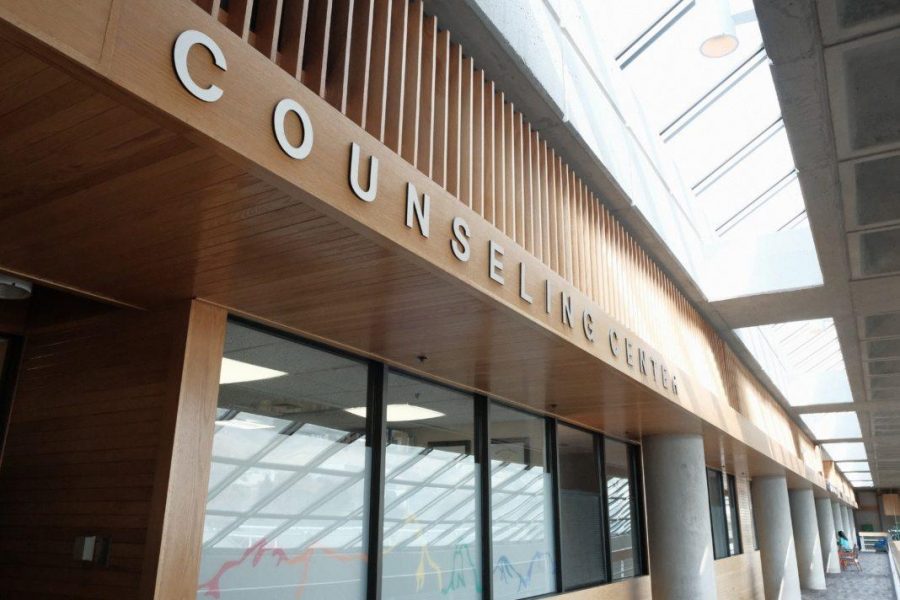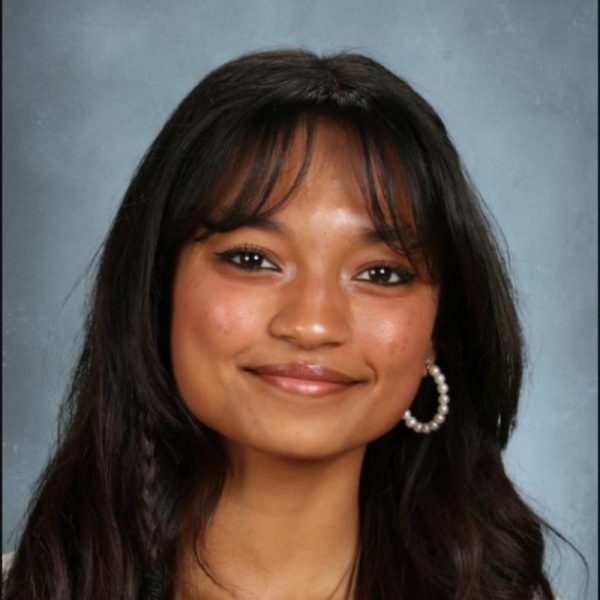According to the American Psychological Association, college students face major struggles with mental health. During the 2020-2021 school year, more than 60% of college students met the criteria for at least one mental health problem.
The U provides a range of mental health resources for students, including group therapy sessions, one-on-one counseling, wellness workshops and immediate helplines.
Among the most utilized resources are Mental Health First Responders (MH1), SafeUT Crisis Chat and Helpline and the University Counseling Center (UCC).
Mental Health Survey: Student Perspectives
In a survey conducted by The Daily Utah Chronicle’s investigative desk, students were asked to rate the effectiveness of campus mental health resources on a scale of 1 to 5, with 1 being not effective and 5 being very effective.
Of those surveyed, the majority of respondents gave the university a score of 4 or 5. One student elaborated saying, “They gave me a few resources to look into. None came to fruition, but it did get the ball rolling.”
Regarding improvements they would like to see in campus mental health resources, students offered similar feedback.
One respondent wrote, “They should bring back the Women’s Resource Center, LGBTQ+ Resource Center and African American Resource Center. The U of U can’t cram all of these marginalized groups into one under the ‘Student Success Center.’ Minority groups have different needs, and those resources were there to help and support them.”
Another student echoed this sentiment: “Reopening cultural centers and creating more positive campaigns for minorities would help.” Two other anonymous respondents also emphasized the need for dedicated cultural resources and support for minority students.
Mental Health First Responders
For students living on campus, MH1 has proven to be one of the most effective resources. This no-cost, after-hours mobile crisis response team operates seven days a week from 4 p.m. to 2 a.m. It serves students living on campus and in nearby housing, including Sunnyside Apartments, Greek Row and Ivory University House.
Dr. Torrence Wimbish, program director of MH1, said the program’s mission is centered on students.
“We all want our students to be safe and have access to mental health and crisis services,” Wimbish said. “At the U, we care deeply about all of our students.”
MH1 was implemented in January 2021 in response to a growing need for after-hours crisis support for on-campus students. Before MH1, students experiencing crises outside regular hours had limited resources.
Since its creation, the program has seen steady growth in usage. According to an article by Benjamin Gleisser, MH1 responded to 26 calls in its first semester. In the fall 2021 semester, this number increased to 42 and in the fall 2022 semester, it grew to 58 calls for help.
Wimbish highlighted MH1’s positive impact but the increasing call volume suggests that demand for crisis support remains high, underscoring the need for continued investment in mental health services.
SafeUT Crisis Chat and Helpline
SafeUT is a crisis chat and helpline that aims to provide real-time crisis intervention for students, parents/guardians and educators through live chat and a confidential tip line, all accessible from a smartphone.
According to the SafeUT website, “The crisis counselor will receive the message and respond quickly in real-time. You will have a safe and non-judgmental space to talk about your crisis. They will work with you in joint problem-solving and can help with information about community resources that might offer more support.”
SafeUT’s approach aims to bridge the gap between individuals in immediate distress and the counseling resources they urgently need. However, Verent Tjung, a sophomore in mechanical engineering and mother of a 2-year-old, expressed concerns that the service does not always fulfill its stated goals.
“When I was pregnant, I used to cry maybe three times a week,” Tjung said. “I was so depressed. And I couldn’t find other resources.”
Tjung chose SafeUT due to their accessibility. She recalls that when she needed immediate help, she often turned to SafeUT to get guidance, calling or texting multiple times a month. But each time she requested advice, she was met with “generic” advice she had heard before.
“My boyfriend goes to therapy, and he comes back saying it helped him so much. But for me, I feel like counseling is always a miss,” Tjung said.
University of Utah Counseling Center
The UCC serves as the U’s primary and most comprehensive mental health resource, with a mission to support students’ well-being.
According to its website, the UCC aims to promote the intellectual, emotional, cultural and social development of the university community through “developmental, preventive and therapeutic services and programs.”
The UCC offers a wide range of services to meet the needs of students, including individual, group and relationship counseling, all available in person or via video calls.
Students can also participate in skills workshops, mindfulness programs and support groups.
To access these services, students can schedule an in-person or virtual intake session to identify their needs and goals. Based on this, they are matched with the service best suited to their circumstances.
The initial consultation can be scheduled by calling the counseling center at 801-581-6826.
The UCC’s services, including intake appointments, single sessions, six individual counseling sessions, group therapy and workshops, are provided at no cost, ensuring accessibility for all students.
Challenges & Successes of the UCC
One challenge for the UCC is its ability to provide sufficient counseling services for the volume of students seeking support.
Merrin Maughan, a third-year biology student minoring in pediatric clinical research, offers a unique perspective on this challenge. As a former mental health peer educator at the UCC, Maughan worked on outreach projects, supported workshops and collaborated with therapists to deliver mindfulness programming.
Merrin describes the UCC as a supportive and enriching environment.
“The Counseling Center is an excellent place to work, an excellent place to be,” Maughan said. “The therapists are great colleagues. They’re great people and they made it a great learning and training environment for the undergraduates.”
Despite these positives, Merrin also felt the UCC faced systemic challenges, particularly strained resources.
To address the overflow of students, the center relies on alternatives such as group therapy sessions and wellness workshops led by trained interns, like Merrin. While these initiatives help reduce the burden on full-time staff, the underlying issue remains.
“I think that people are overworked, with an oversaturated client base,” Merrin said.
Although she believes the quality of counseling provided to students remains high, she is concerned about the long-term sustainability of the center. The strain on staff could lead to burnout, Merrin said, which may impact the ability of the UCC to continue providing its current level of care.
Another undergraduate student, James Jenkins, shared their experience as a client of the UCC. Jenkins first sought out the counseling center after learning about its services on campus.
With specific requirements in mind for what they wanted from therapy, Jenkins was pleased to find that the UCC successfully matched them with a counselor who met their needs.
One of the key reasons Jenkins chose the UCC over private therapy was its accessibility and affordability.
“I don’t think private therapy is accessible to the vast majority of students,” Jenkins said.
They said being intentional with the spacing out of sessions ensured they did not have to pay for any services.
“The way my counselor and I structured our sessions at the counseling center was really thoughtful — we spaced everything out appropriately,” Jenkins said. “By the time the year rolled around, my free sessions were reset. I’ve never paid anything because my therapist has been really good about making the most of the yearly free sessions.”
The Future of Mental Health Resources
Former mental health peer educator Merrin Maughan is also an assembly representative for the Associated Students of the University of Utah (ASUU).
She has been actively involved in promoting initiatives to enhance campus mental health facilities.
In October 2023, ASUU successfully passed bill JR 02 stating, “the University of Utah student body supports a $10 increase to the student success fee to fund additional counselors on campus, enhance marketing for existing resources, provide education about mental health challenges and available services and reduce the stigma around seeking help.”
Maughan said another way the U can address the need for mental health resources is by fostering open discussions about mental health on campus.
“It’s all a matter of money, but I also think that there are missing pieces to the way that resources are advertised and talked about on campus, and a lot of that comes down to the stigma surrounding mental health and mental health resources,” Maughan said.
She said the process of de-stigmatizing conversations about mental health will be a process that takes time, and added it is important to recognize that solutions may look different for different students.
“These can’t be fixed overnight but can be fixed as part of an ongoing conversation surrounding mental health,” Maughan said. “Part of that is realizing that individual counseling isn’t a perfect solution for everyone struggling … mental health resources will look different for every mental health issue.”




Bob Edgar • Dec 22, 2024 at 12:46 pm
Quite an interesting read, especially with the rise of mental health concerns here in the states. Author appears knowledgeable and has a talented writing style.